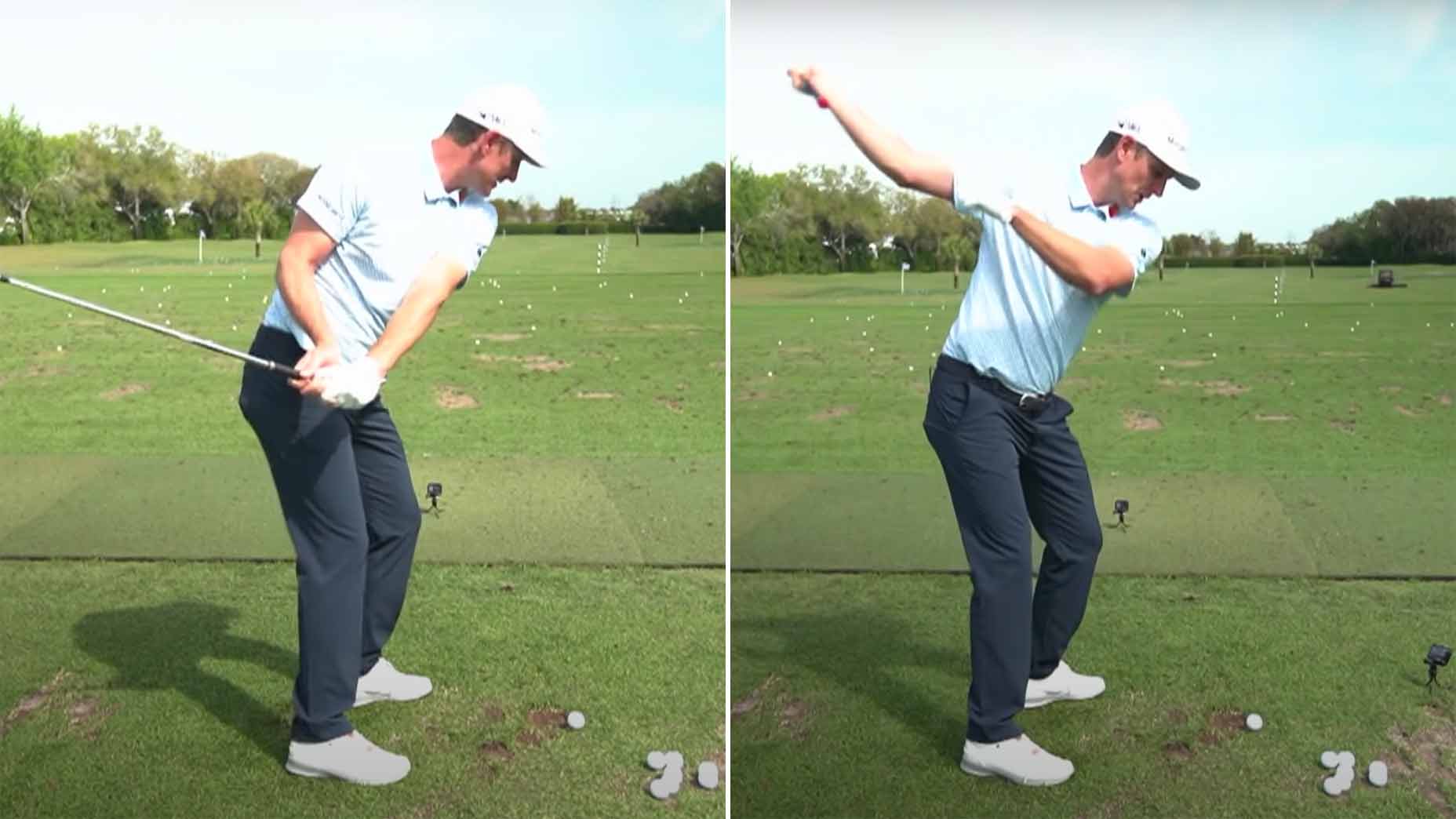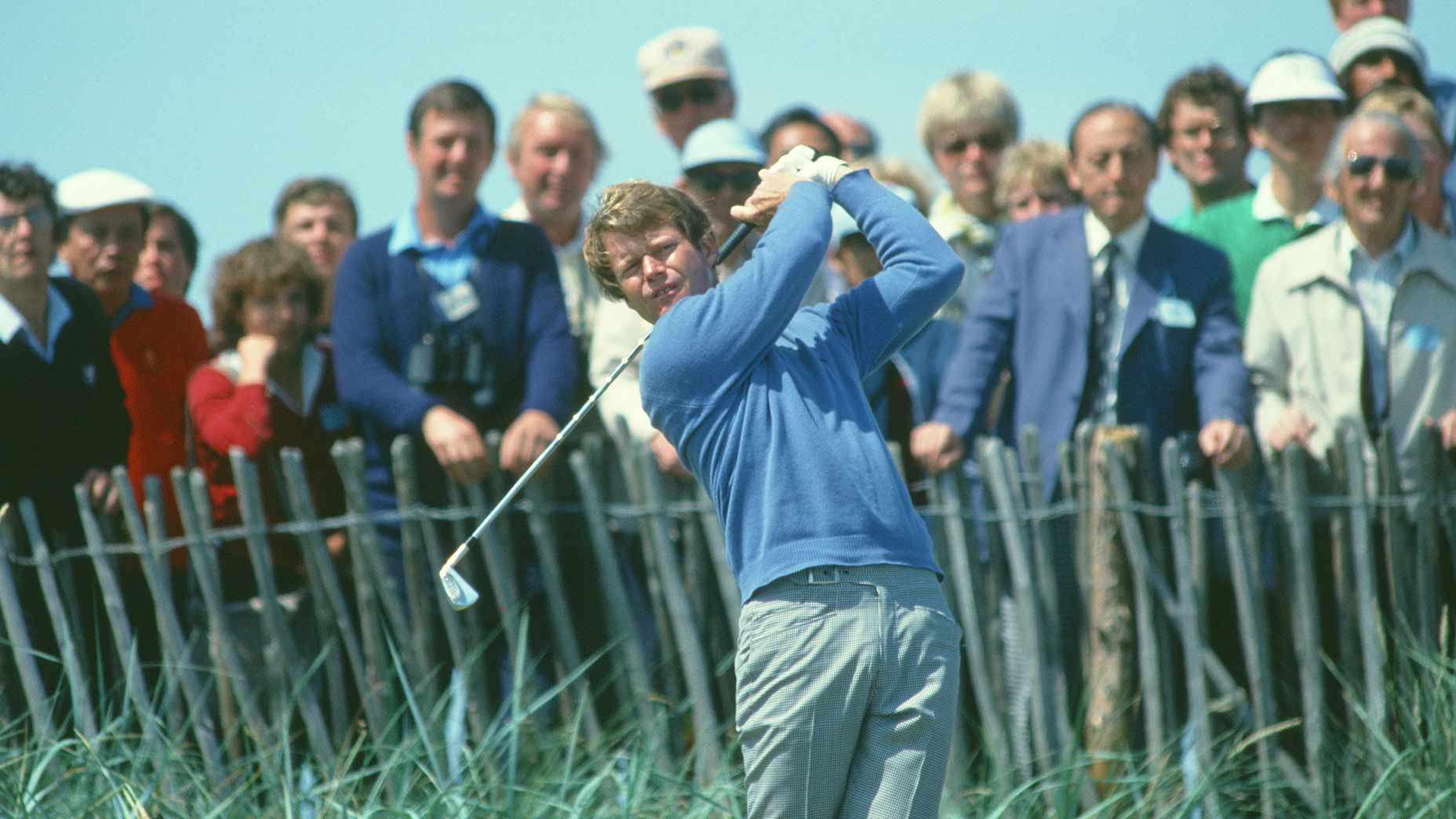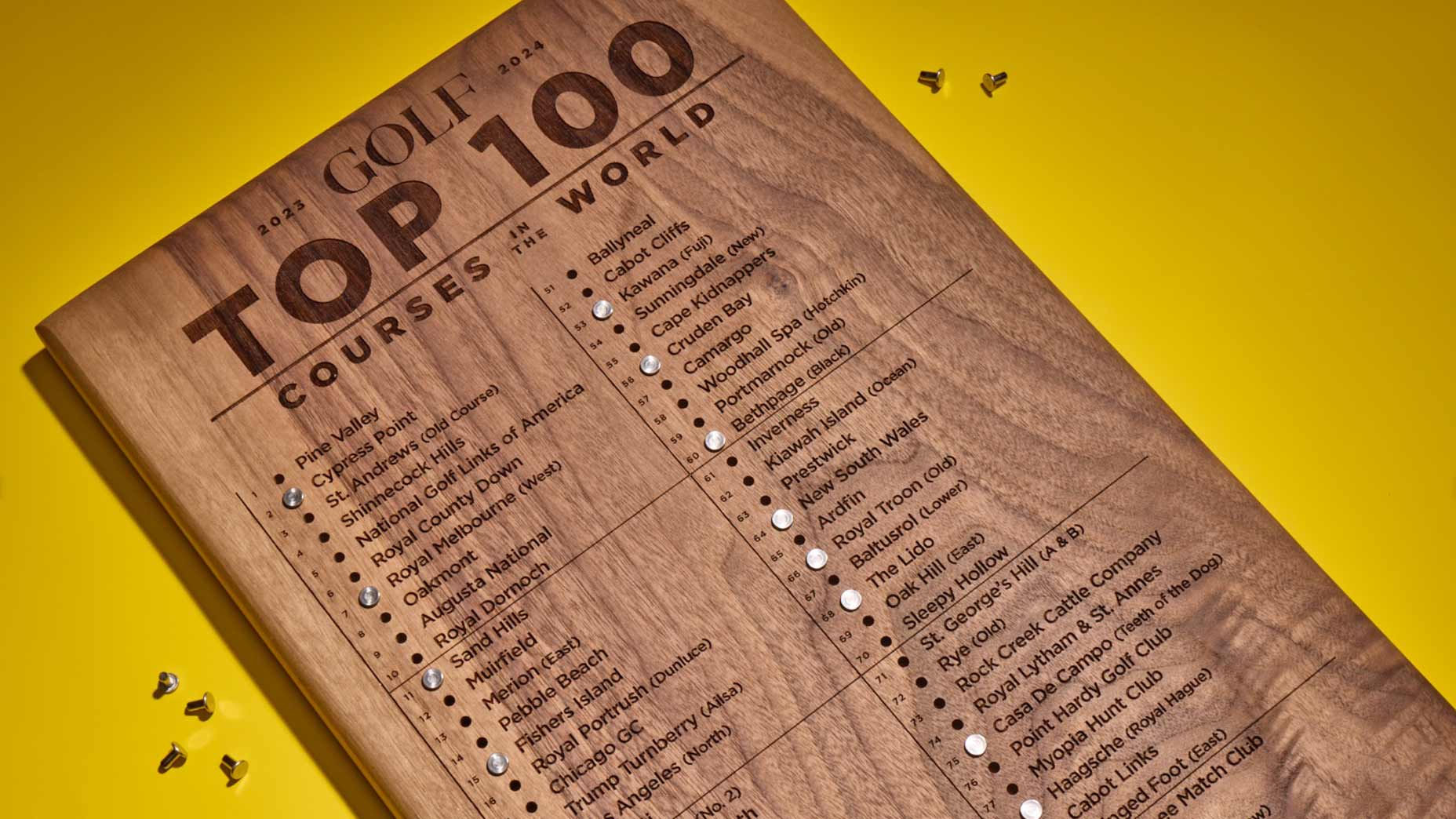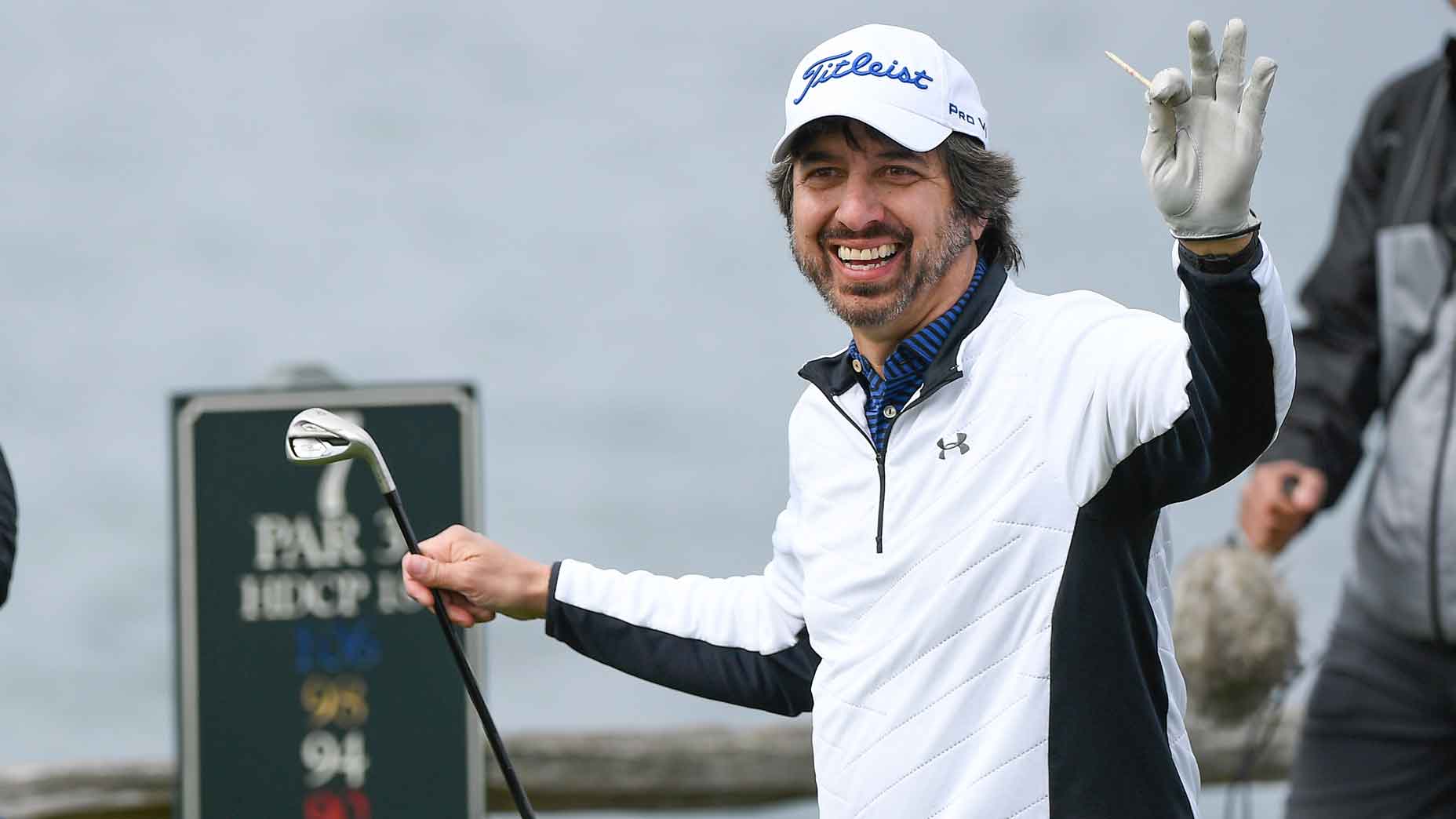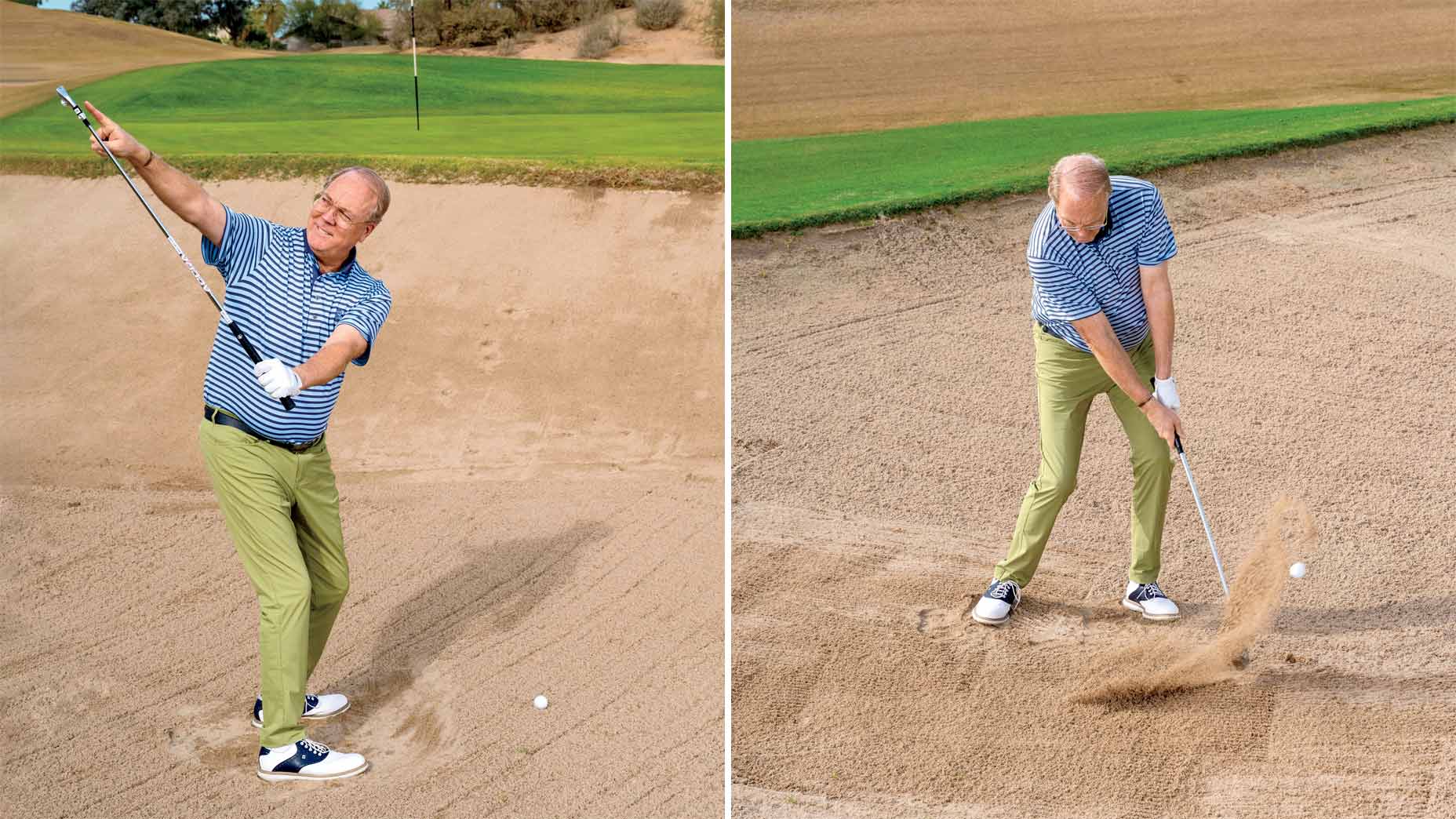‘There’s a bit more in the tank’: Justin Rose is ready to capitalize on a resurgent year
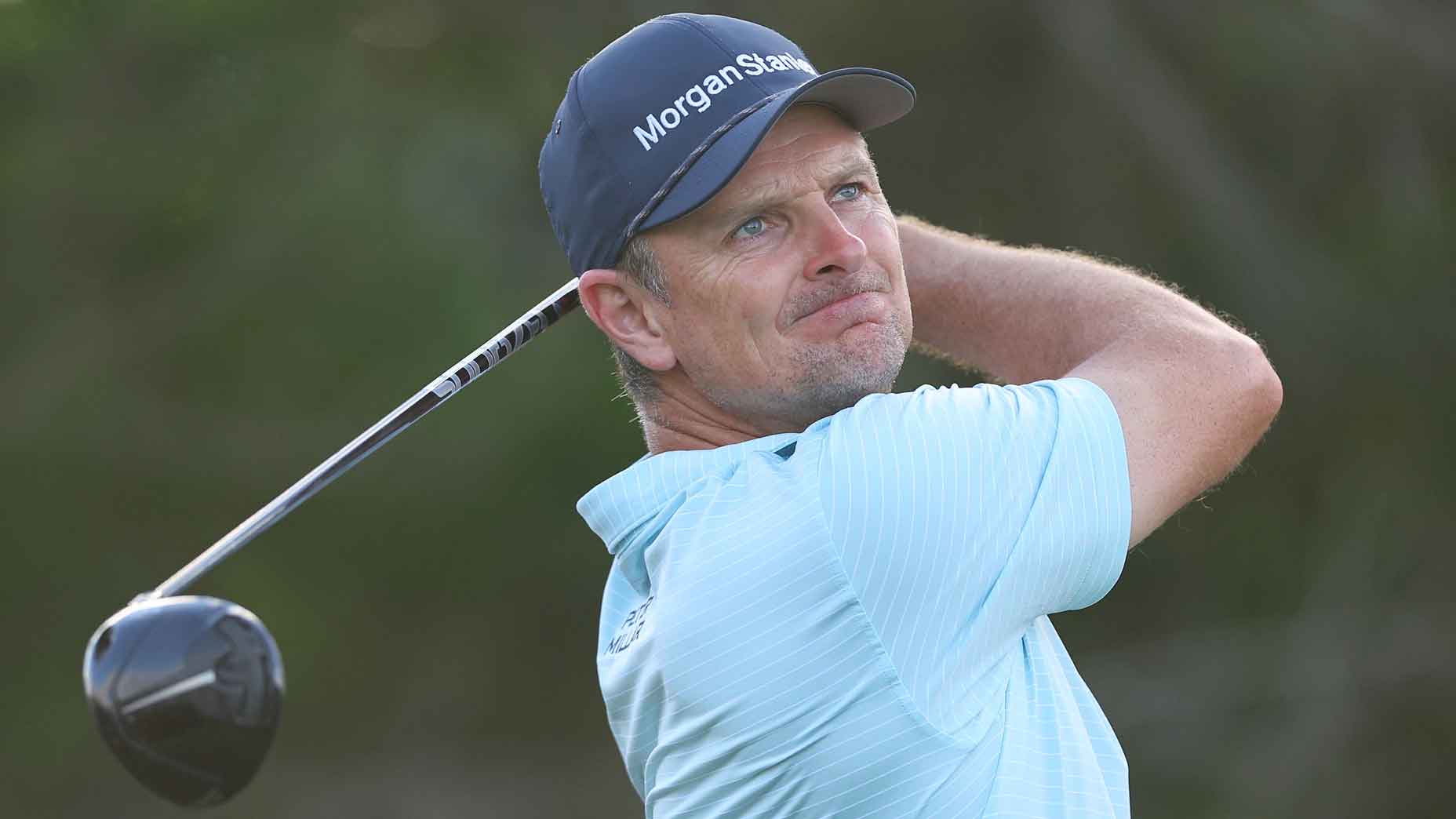
Justin Rose believes his best golf is still ahead of him.
Getty Images
At 43, he has one major, 11 PGA Tour wins and rafts of Ryder Cup triumphs on his résumé. Is the smell of success sweet enough for Rosey yet? Well…
***
THE SCENE: Albany, Bahamas, in between shots during a practice round at the 2023 Hero World Challenge.
Dylan Dethier: From the outside it seems like 2023 was a killer year for you. You won a PGA Tour event at Pebble Beach, had an awesome Ryder Cup in Rome, had some real moments of a renaissance. Did it feel just that satisfying to you?
Justin Rose: Yeah, for sure. It was a year to get back into events that really matter, know what I mean? I’d been on a little downward spiral for a couple seasons. There’s a lot that goes into why that is, but getting out of it is hard. I feel motivated and I feel hungry. And look, before any good golf shows up, there has to be that work, that commitment, that foundation that has to have taken place. At the back end of [the 2022] season I changed coaches. I went to Mark [Blackburn], not out of desperation but out of a belief that I could just be better again, that I could be better than what I was doing. That’s always what drives me.
DD: What was the difference between 2022 and 2023?
JR: I was just playing s—. I had some moves in my swing that were just kind of cancerous to my game. They were problems that needed to be fixed. They were things that had crept in over time and proved really hard to get out of. Specifically, I was just pulling really hard from the top and getting really steep in transition with an open face, which means relying on loads of compensation at impact. But the other thing I always kind of felt is that I’d play worse on Tuesdays and Wednesdays than I would on Thursdays. So, as a competitor, I still felt like I had it, and that was a really good thing to realize, because if you lose that side it’s much harder to come back. But with good information, the hard work and technique is all doable, and that’s what I’ve put my faith in.
DD: Have you always enjoyed that part of it? The hard work?
JR: Yeah. I’ve always preferred the journey to the destination. Even when I got to World No. 1, at times I was like — it wasn’t what I felt like it would be. So I’ve always liked the striving. Feeling like I could be a better golfer tomorrow than today is really a powerful thing. I have a love for that.
DD: So if World No. 1 isn’t the thing, what becomes the thing? The process?
JR: Exactly. The process is really important. And now proving to myself that I can do it again. I feel like my best golf is behind me, but it’s also in front of me. So, if I’m able to do it again, it’s almost like a new exploration. Physically, as you get older, things move differently. You have to be smarter and work around other challenges — life and travel and family commitments. So if I am able to have a little golden moment [late] in my career, I almost think it will be relearned… and re-earned. [Grins.] Relearned and re-earned — there you go.
DD: Were there moments you doubted there’d still be winning golf in front of you?
JR: I’ve definitely felt a long way off at times. But I’ve always seen myself being able to rise to the level and pull it out of me at moments that count. That’s always been encouraging.
Feeling like I could be a better golfer tomorrow than today is really a powerful thing. I have a love for that.”
DD: Is there anything that working with Mark Blackburn has specifically helped you with?
JR: I think it’s the belief in the science behind the moves and his ability and his knowledge of the swing. But, if I’m being honest, what I really like about Mark is his understanding of my history. It wasn’t like he was coming at me with his preferences. He really understood my preferences, and when I played well what my pattern was.
DD: He’s not fitting you into some sort of system.
JR: One hundred percent. He’s working with me on where I naturally fall. He’s saying, Okay, when you do this, then you have to do a bit of this and a bit of this. We’ve worked on adding things in that support my natural pattern instead of trying to change it.
DD: What sticks out from your win at Pebble Beach?
JR: A big part of the week, early on, is that it’s a social event. I was teeing it up with James Gorman from Morgan Stanley; it’s great fun but maybe there’s a lack of intensity. But, obviously, come the weekend and playing good golf, that all changes. There were specific shots, like making eagle from the fairway bunker at No. 6. But it was most encouraging that, not having won in four years, I was able to close the door quite emphatically.
DD: If Pebble begins as a relatively low-intensity week, the Ryder Cup is the exact opposite. How much satisfaction did you feel that 1) you worked your way back onto the team after missing out at Whistling Straits, and 2) you then had the big moments you had?
JR: I was obviously very nervous. I had to go through all my playbooks. Okay, what do I do when I’m feeling this? How do I approach it if I’m feeling like that? It wasn’t always comfortable, but it reaffirmed for me that feeling comfortable doesn’t really matter. If you’re prepared and you’re focused, then nerves are a really good thing.
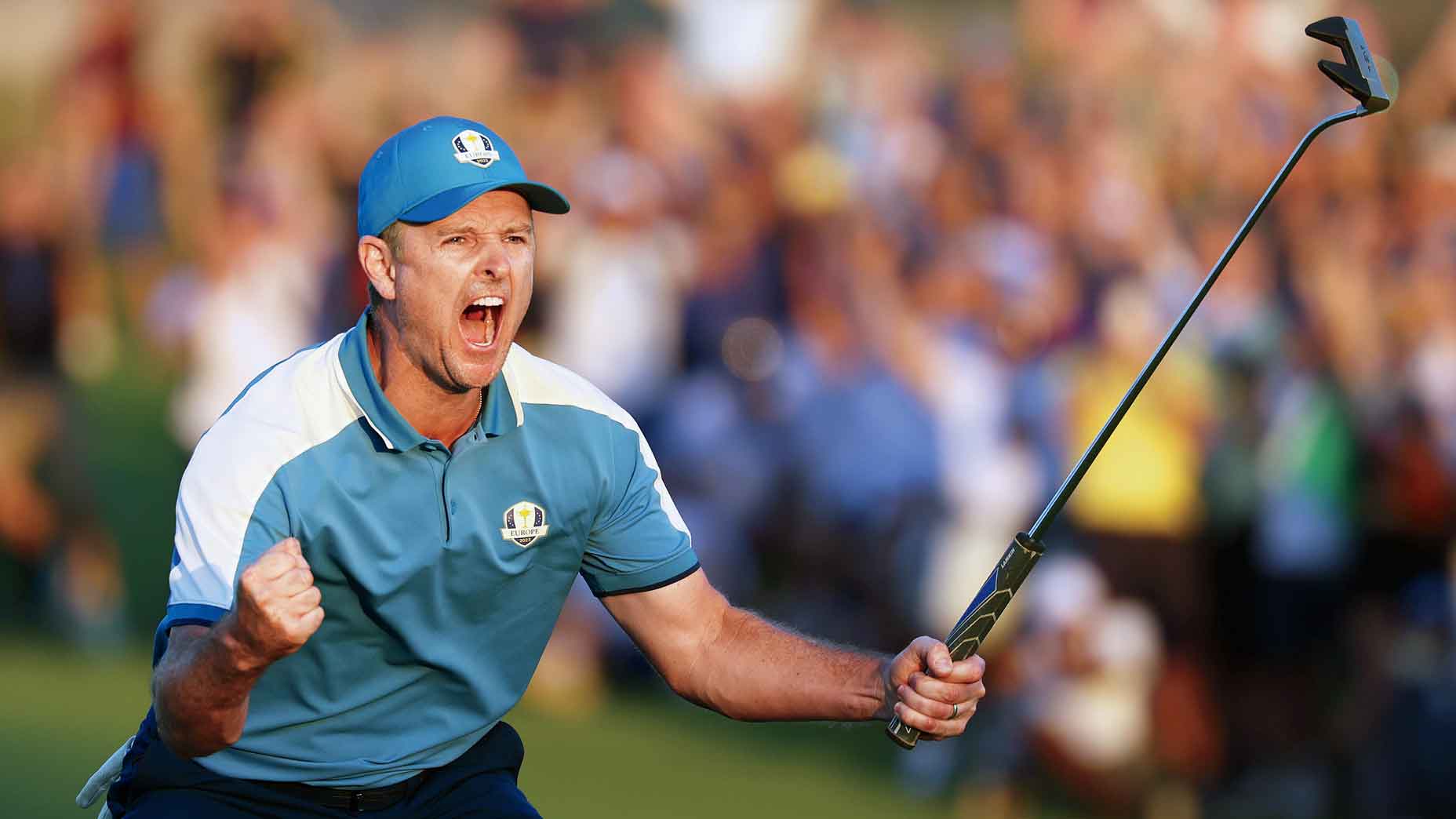
DD: What was the highlight of that week?
JR: The bus ride home, having won the Cup. The camaraderie of the team, the singsong, the fun of celebrating. It’s about winning, it’s about winning as a team, and then, obviously, you look back individually — that moment on Friday where [I had] the last putt of the day and everyone’s around. You can win your matches, but you can’t always be in that situation. I’ve been on the sides of greens when other guys have had that big moment, and it was cool to be in that situation.
DD: How do you avoid a letdown? After you’ve had a year like 2023, capped off with that win in Rome, how do you keep going and get back to the work?
JR: I can do it because I don’t see it as a big year. I see it as a stepping-stone year. For me, a letdown would be a similar year. I feel like I want it to be a year that trampolines me back to being the kind of player I want to be. This is cool — winning is always good. But there’s a bit more in the tank, and that’s what I’m pushing for.

